CFMEU Women – SEWA and BWI Tour
CFMEU - SEWA Study Tour and BWI Asia Pacific Regional Committee and Women’s Committee Meetings
Ahmedabad, India and Colombo, Sri Lanka 25 – 30 September 2025
Report by CFMEU WA representatives Michelle Sheehy and Ronny Buchan.
Representatives of the CFMEU recently attended a study tour to Ahmedabad, India organised by the Self Employed Women’s Association (SEWA) – the largest women’s Union in India with over 3.2million members across 18 states. The CFMEU Delegation of 8 was comprised of women rank and file members and officials from the WA, Qld/NT and Vic-Tas Branches. Michelle Sheehy and Ronny Buchan attended from WA.
The tour included visits to construction sites, training centres, migrant camps and community centres run by the Union. It also included attendance at meetings of rank-and-file construction union members, including a mass meeting of over 1000 SEWA members who endorsed a list of claims to be lodged on the state government and the International Labour Organisation (ILO).
The study tour was followed with attendance at the BWI Asia Pacific Meeting, the BWI Asia Pacific Women’s Committee Meeting and a Forum on strategies to win Climate Justice for construction workers in our region.
Day 1 – September 25
The tour started with a visit to the Law Garden – site of the first meeting of independent women street vendors to create the Self-Employed Women’s Association (SEWA) in 1972. A tree was planted that day by the founder Elaben Bhatt, and the CFMEU participated in a ceremonial prayer and watering of the tree.
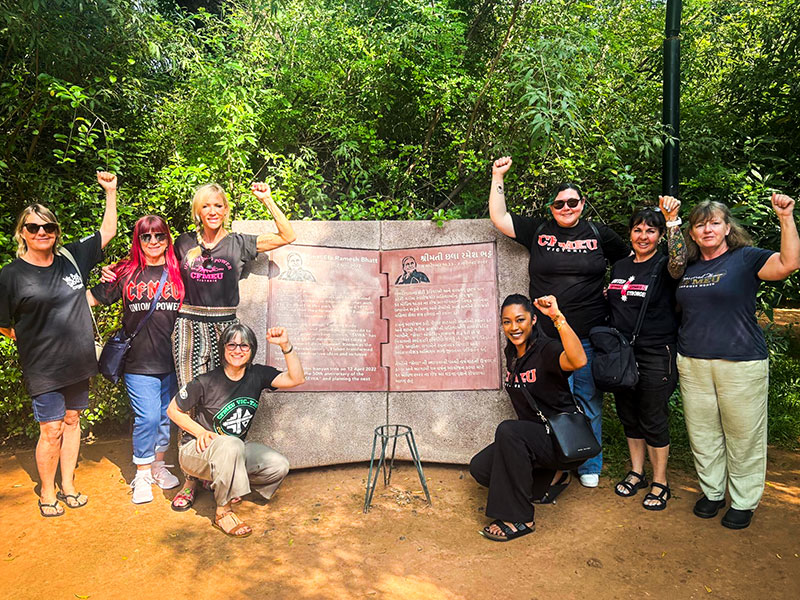
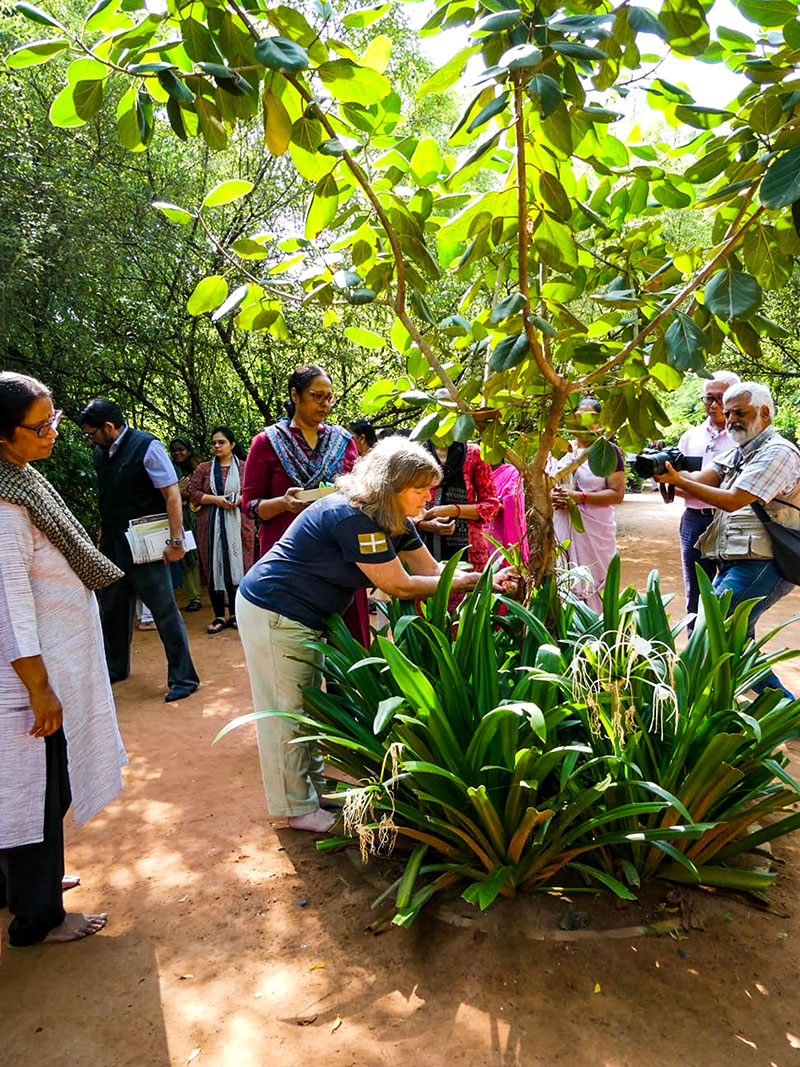
We then attended a meeting of the SEWA leadership and 150 rank-and-file construction members at the Union Reception Centre. SEWA represents 3.2 million women workers from 18 states across several industries including construction. The meeting was addressed by SEWA National leaders, BWI General Secretary Ambet Yuson and the CFMEU’s Lisa Zanatta on behalf of the Australian delegation. Speakers from the floor shared their experiences of their struggle for income, housing and social security. The theme focused on organising for climate justice and gave many examples of the challenges faced by women in construction, and SEWA’s work providing training and establishing bank loans and insurances for women workers who would otherwise not have access to these critical services.
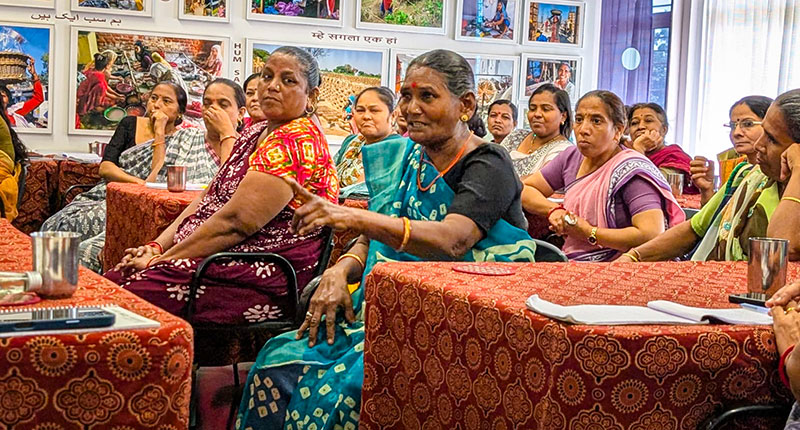
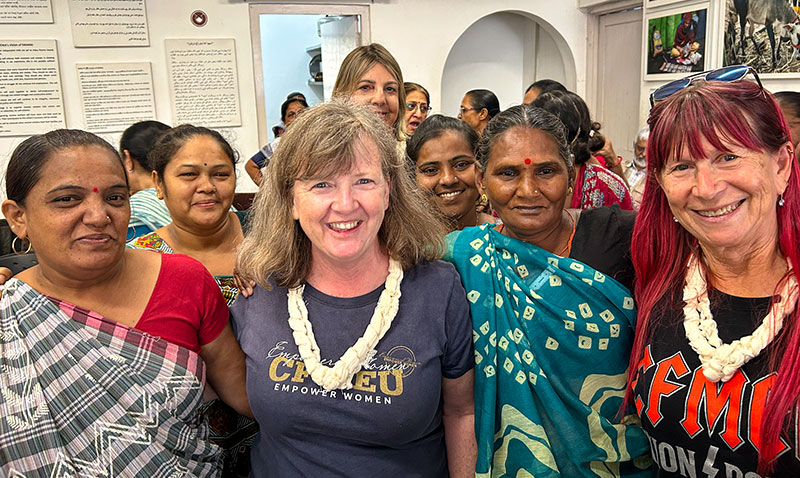
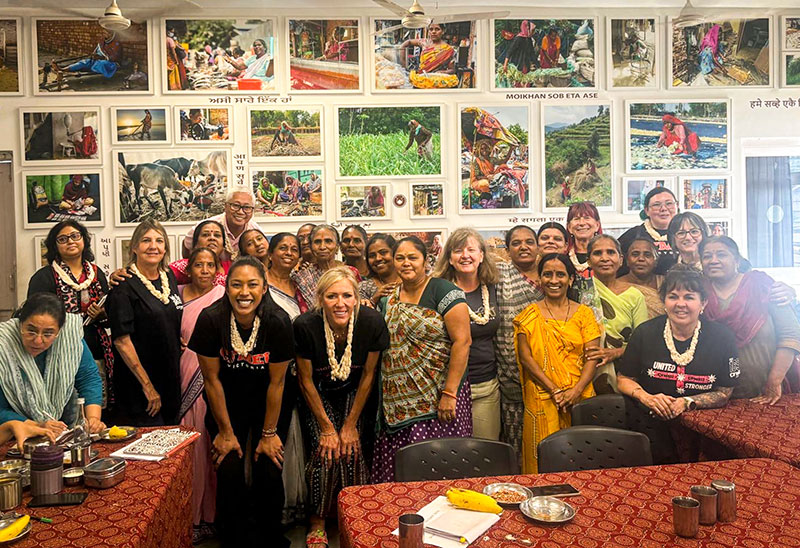
The tour’s next stop was to the Rachaita Cooperative construction site, where 10-15 skilled SEWA tradeswomen regularly work on site, and witnessed many WHS challenges and typical safety conditions faced by Indian workers, and the pride that they have in their trade skills. CFMEU representatives met the Leading Hand for women workers on site, who distributes payment to the crew.
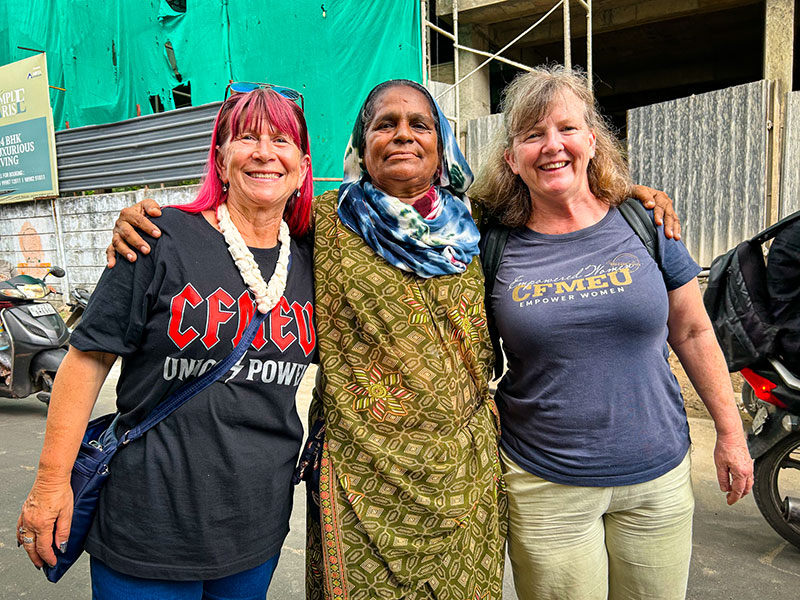
CFMEU WA’s Ronny and Michelle with the Leading Hand on the Rachaita site.
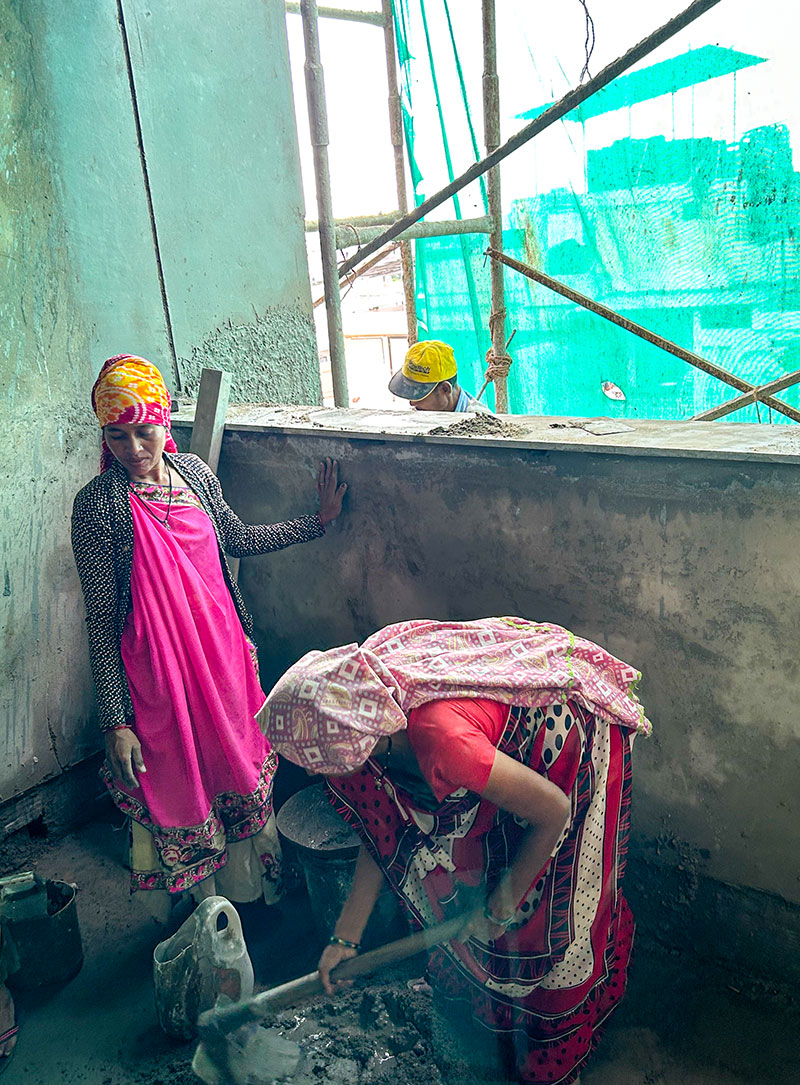
SEWA concreters working on the Rachaita site.
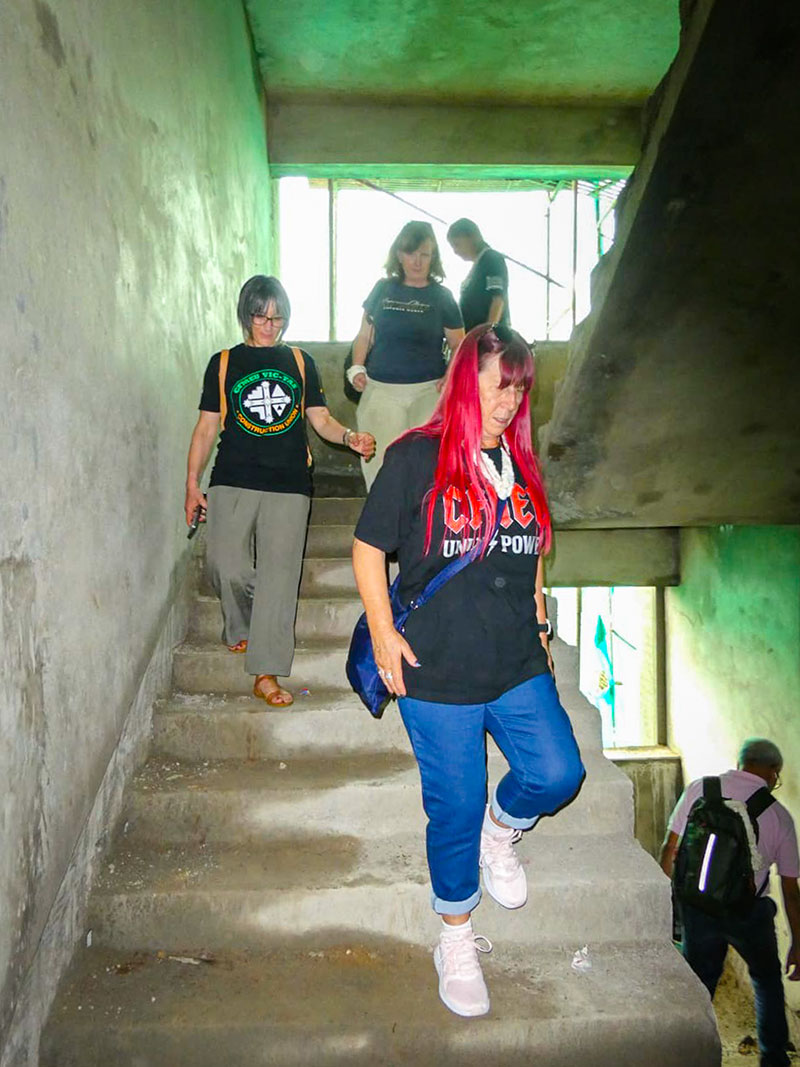
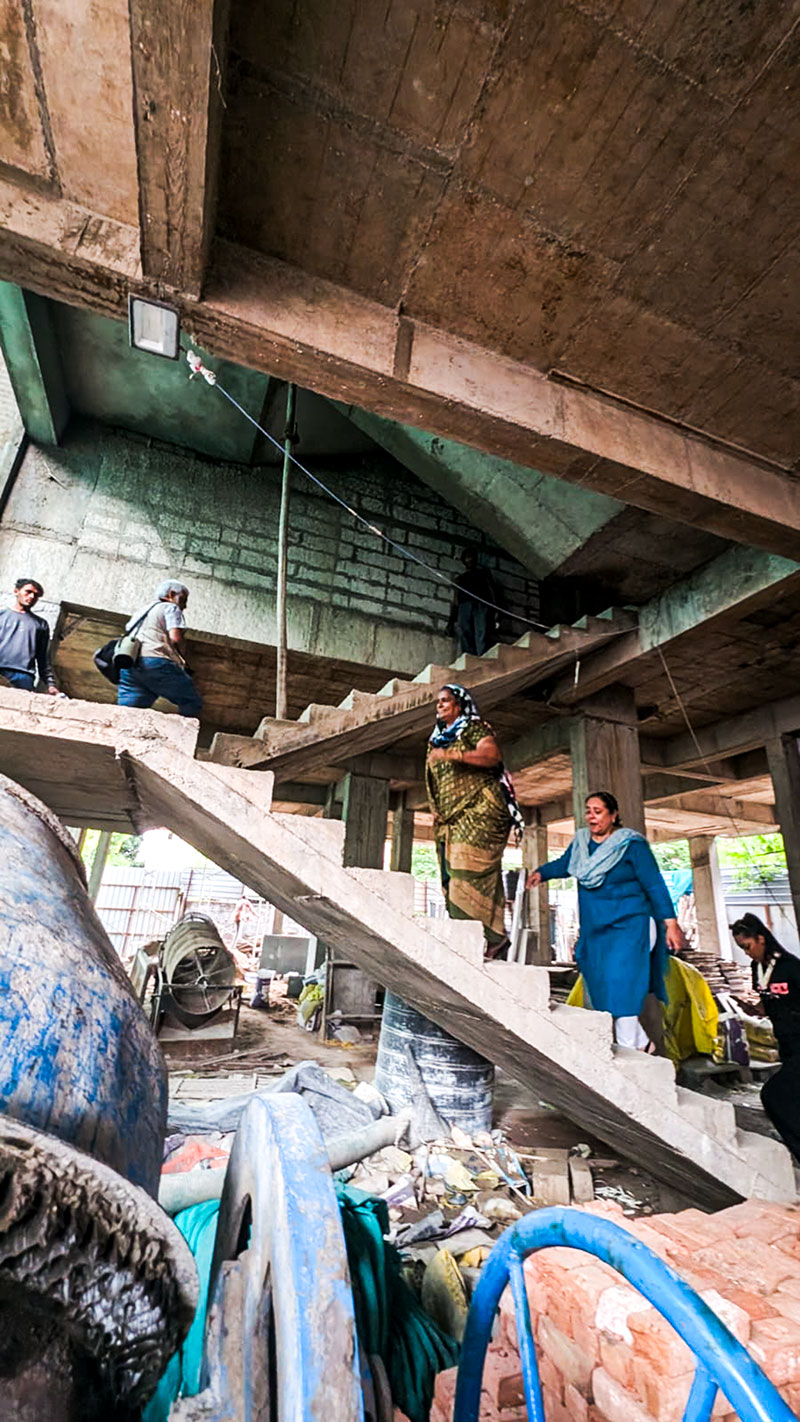
The day concluded with a visit to the SEWA Trade Facilitation Centre, and observed training for women on solar panel installation. SEWA provides a 3-month traineeship for women aged 18-45 on panel installation.
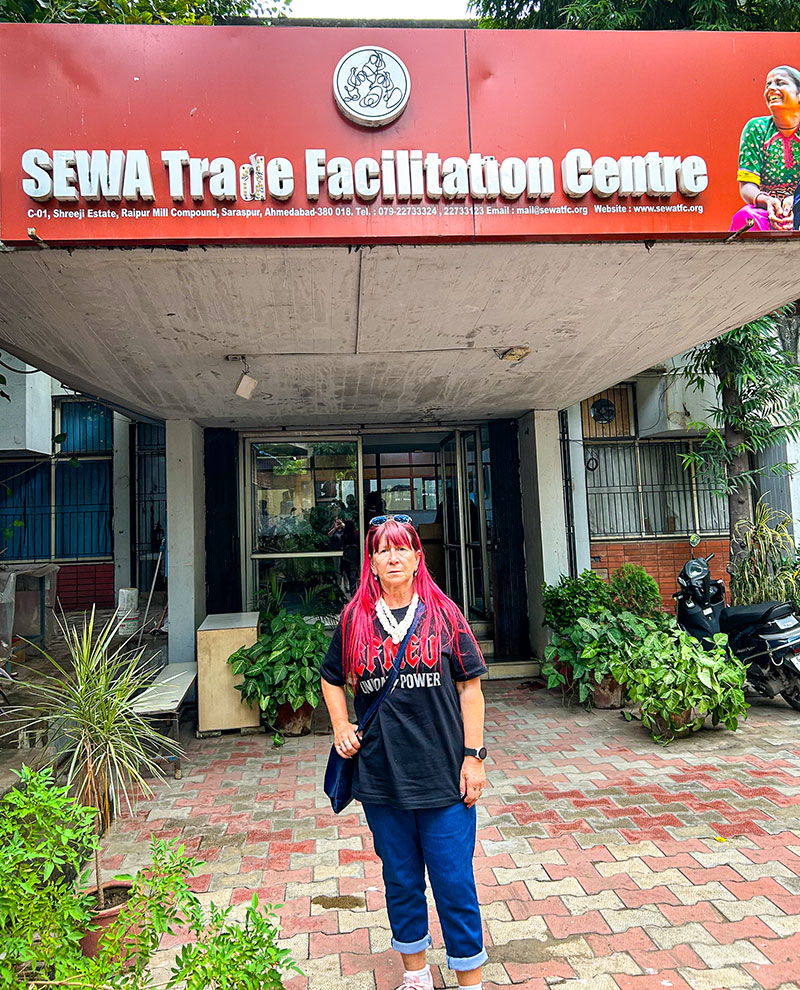
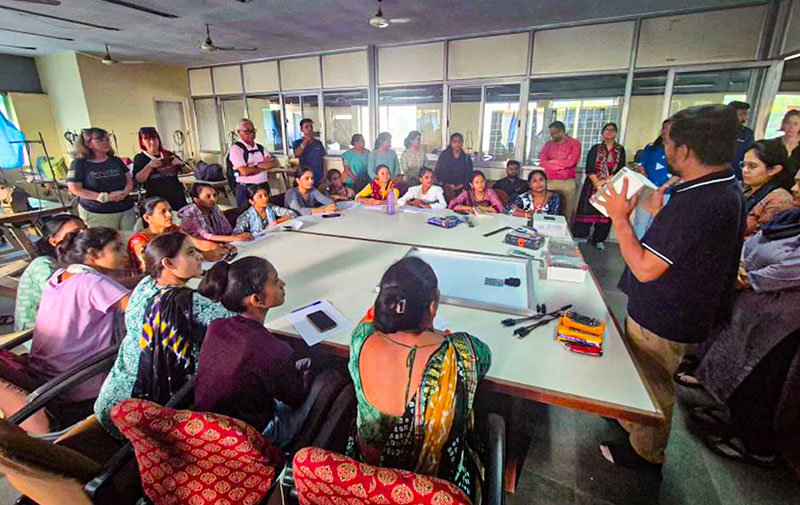
The tour also visited a cooperative of women workers manufacturing stationery. The workers are from SEWA’s waste and recycling sector, previously working on tip sites, and are provided with training and an income by producing stationery for sale.
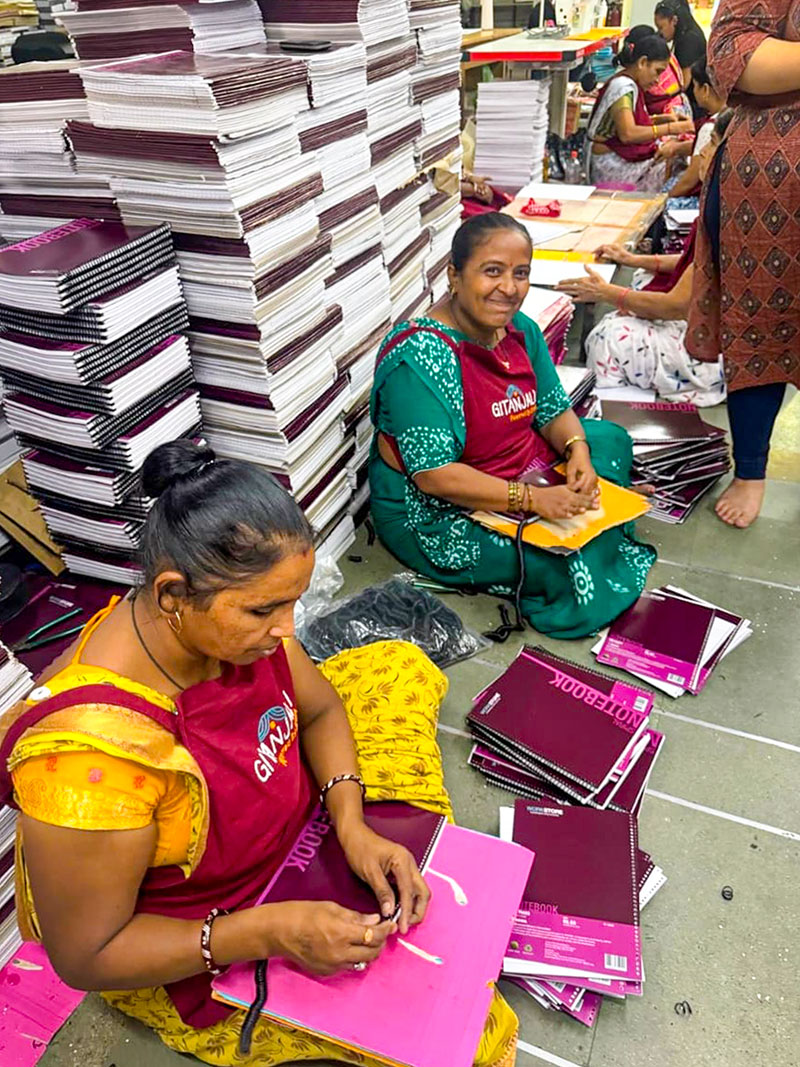
Day 2 – September 26
The day began with a visit to a makeshift camp to meet with the migrant workers living there. Women construction workers shared their stories about their living conditions in temporary humpies made from PVC plastic, with no running water in an area prone to flooding during monsoon season, and leaving them unable to cook meals. Many children have been born at the site over the 5 years of its existence, but have no access to education or health care because their births have not been registered.
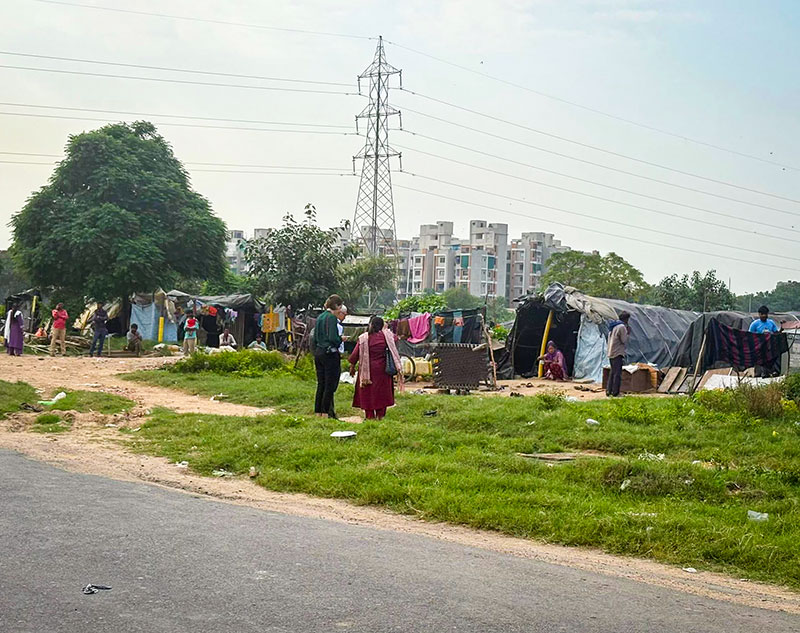
They also shared with us their pride in holding Union membership, of earning equal pay with their husbands as tradespersons, and opening bank accounts in their own names through the Union-owned bank.
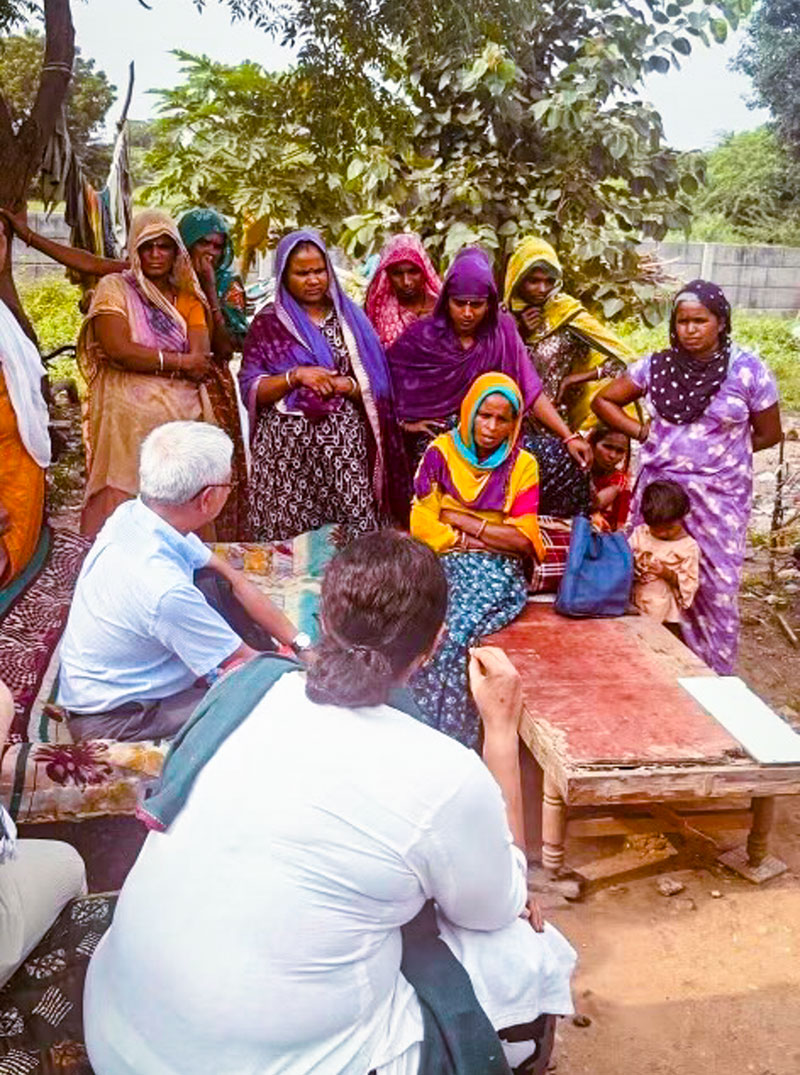
We also learned of the many programs SEWA has in place to support families living at the camp. One is the SEWA knowledge centre for children, where SEWA employ a teacher to hold classes at the camp every day. Other programs provide food in monsoon season and deliver sanitary products every month. Importantly we learnt how SEWA is supporting the workers to register with the State Welfare Board for Building and Other Construction Workers, which was established in each state in 1996 and provides workers compensation payments, pensions, financial assistance for education and health care, paid maternity leave and compensation for loss of pay due to extreme weather. Workers must have an ID card to be able to register with the board (obtained with a Birth Certificate) but migrant workers have no such identification. SEWA has negotiated with the board to accept a Union card for ID along with a letter confirming the person’s identity from SEWA. The access this provides registered workers for their social security, health and education is life changing.
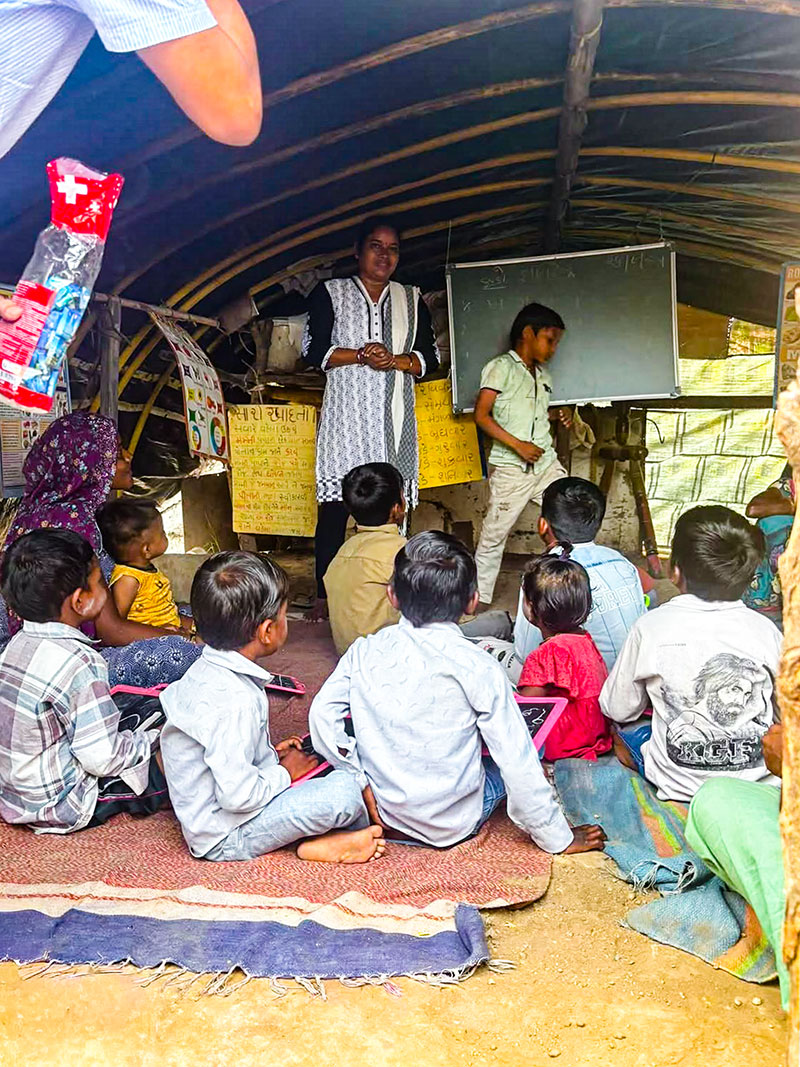
Children at the SEWA camp school.
The delegates then travelled to a Dhanvantri high-rise apartment construction site, observing the challenging WHS conditions that migrant workers experience.
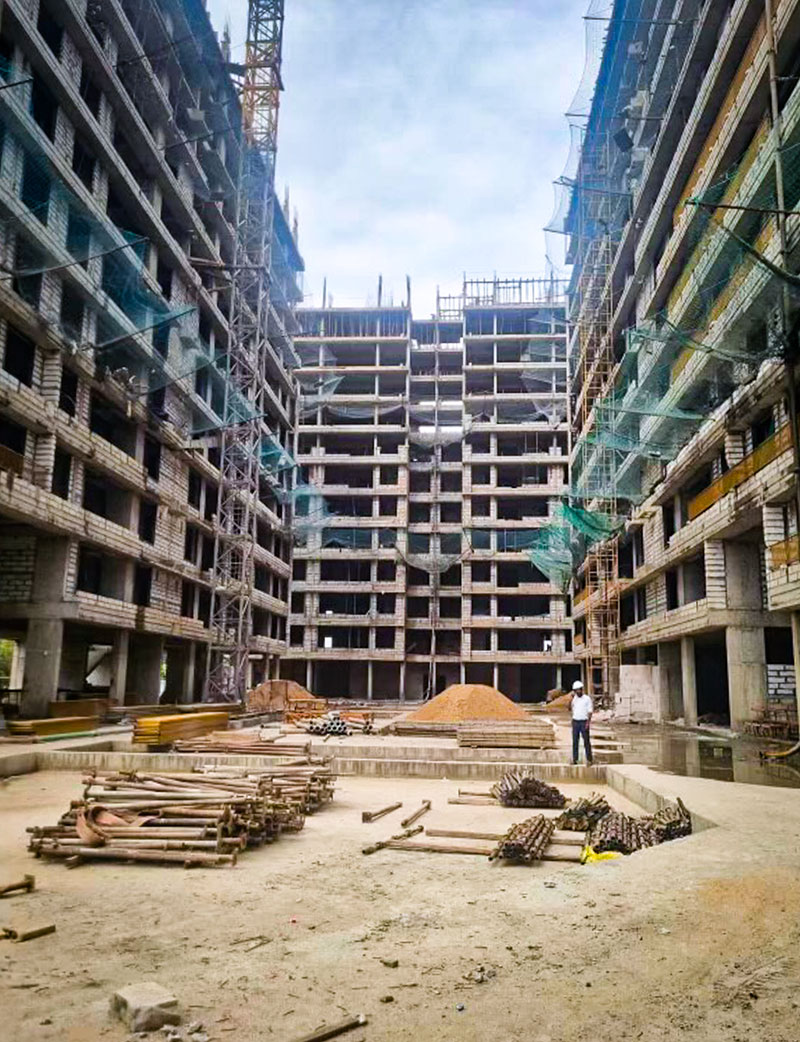
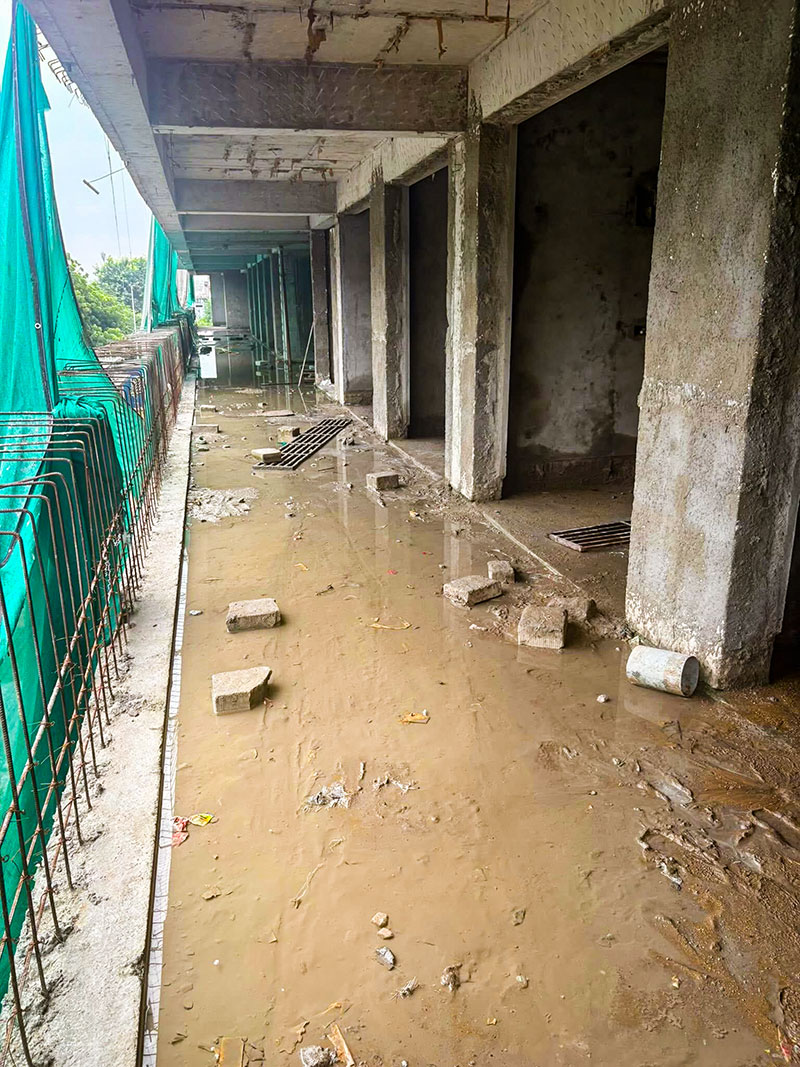
We met with women plasterers working on site with their infant children. The worker (left, below) with her young son told us she is 17 years old and seven months pregnant. Workers can only register with the Welfare Board to be eligible for workers compensation or maternity leave once they turn 18.
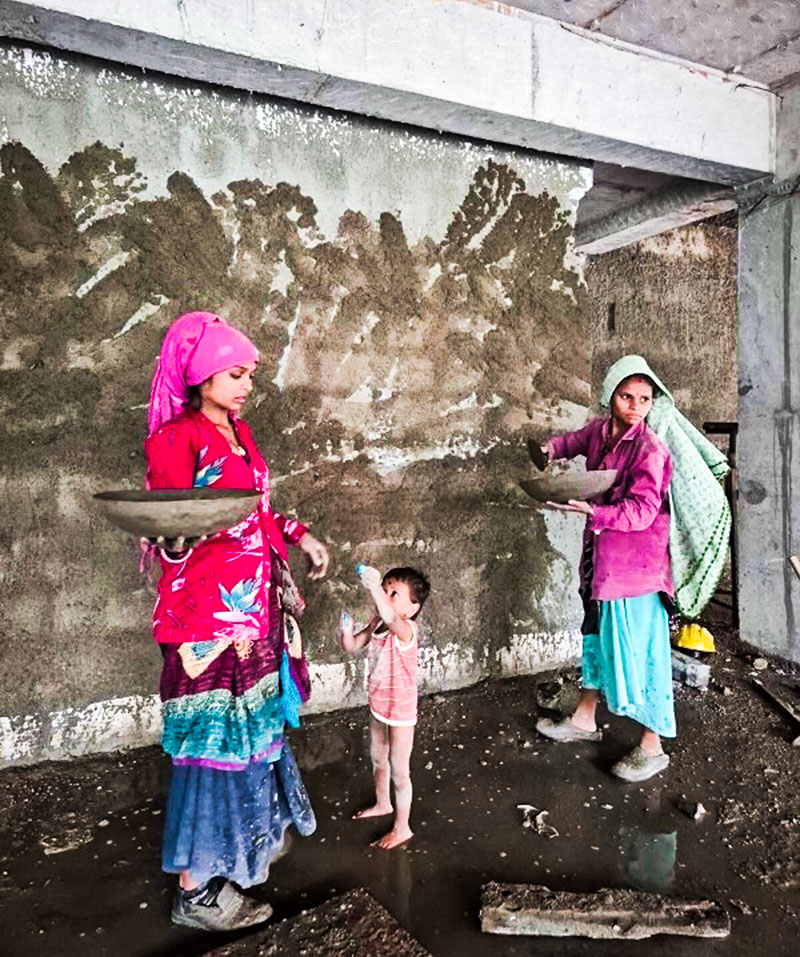
There were several small children on site playing in the concrete dust. When asked what was done to protect the safety of children on site, the section supervisor replied “Sometimes we give them food…”
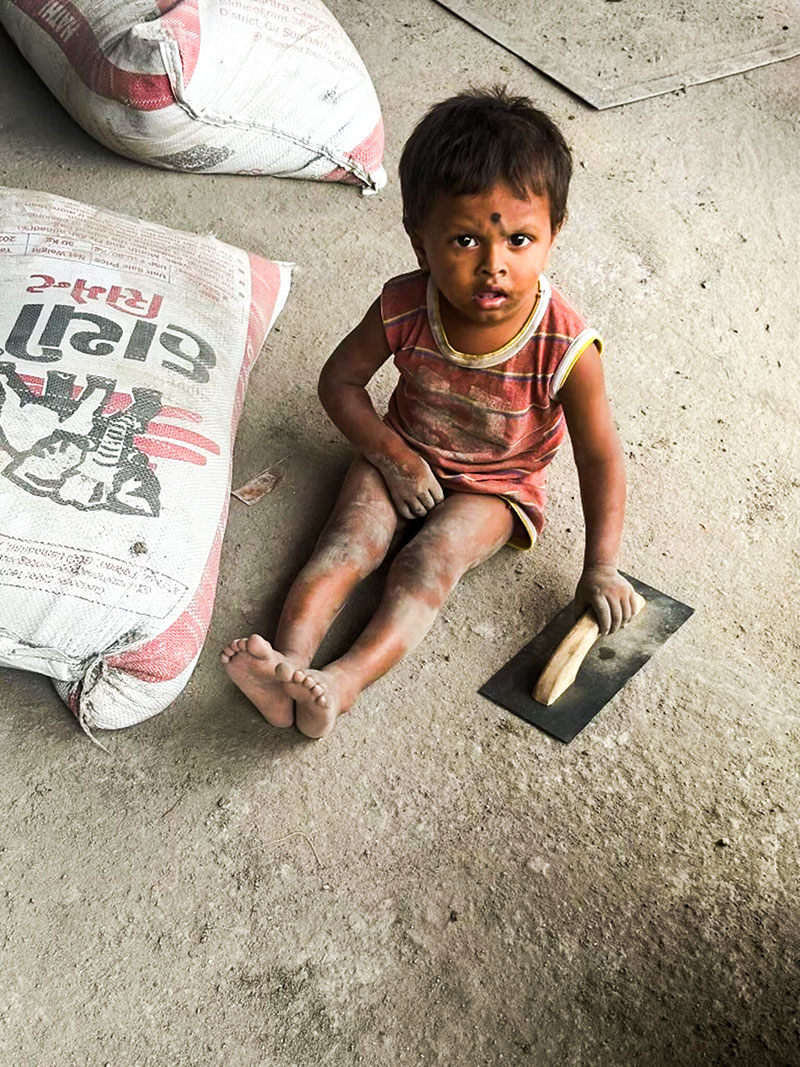
The cohort where then welcomed to a SEWA-run community centre, which provides a health clinic, meals and educational classes for families in the area.
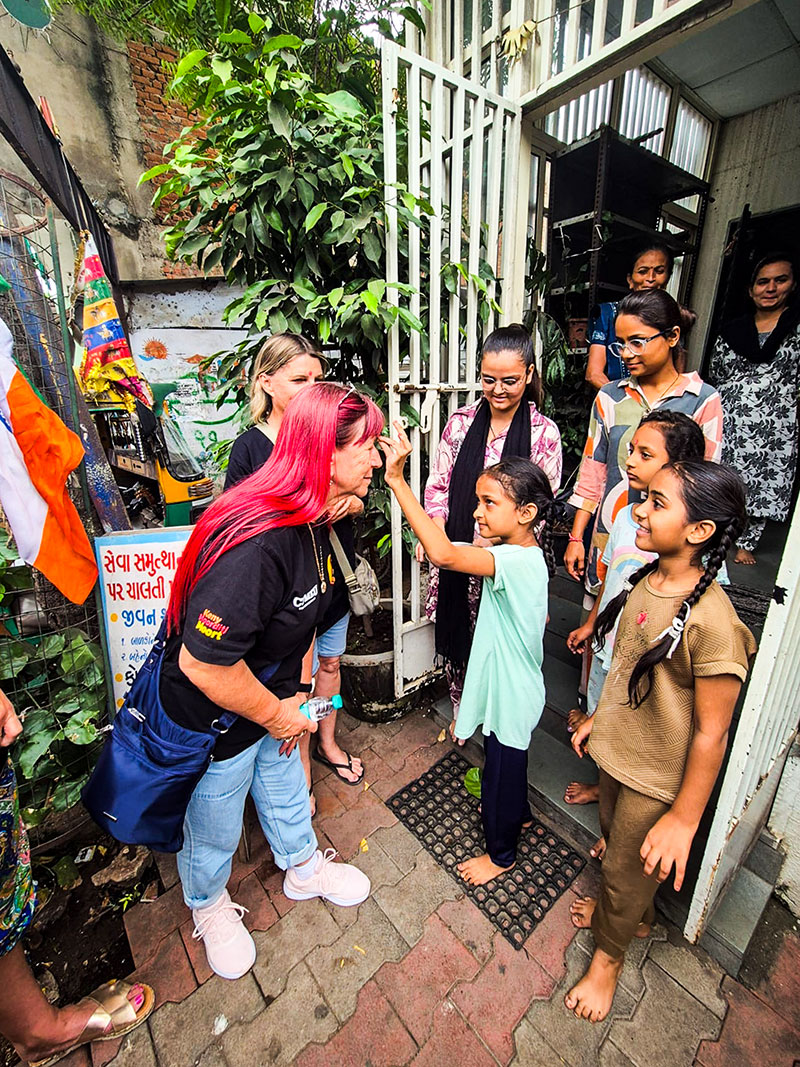
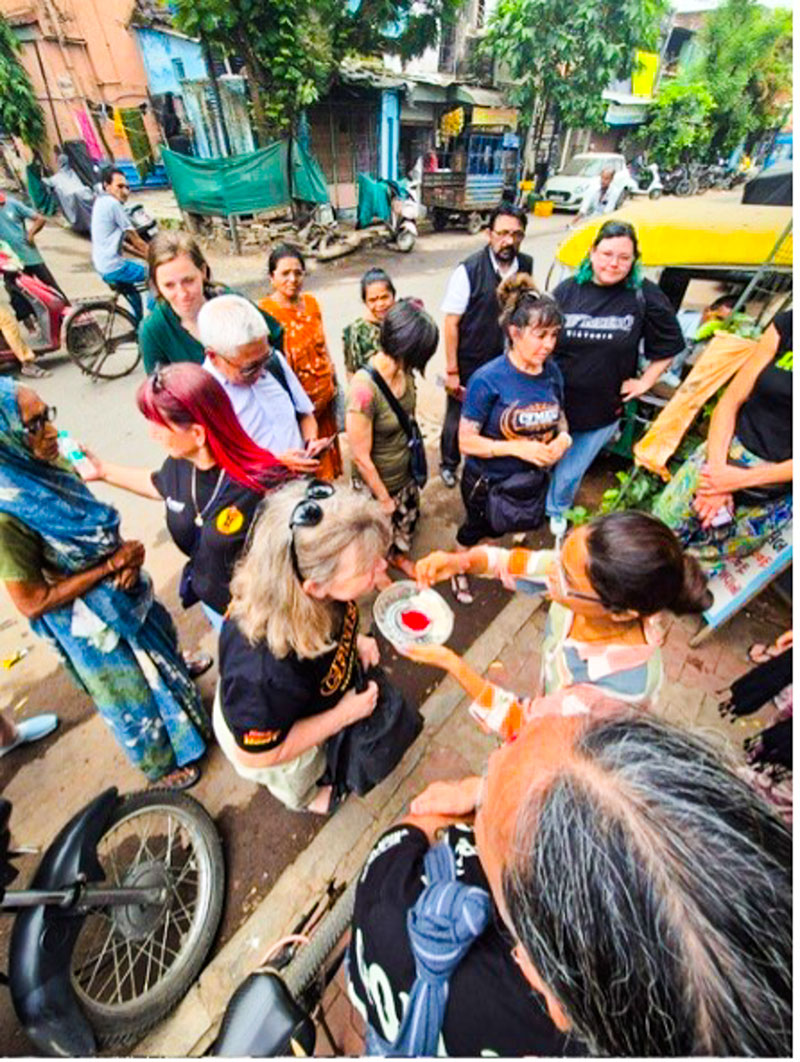
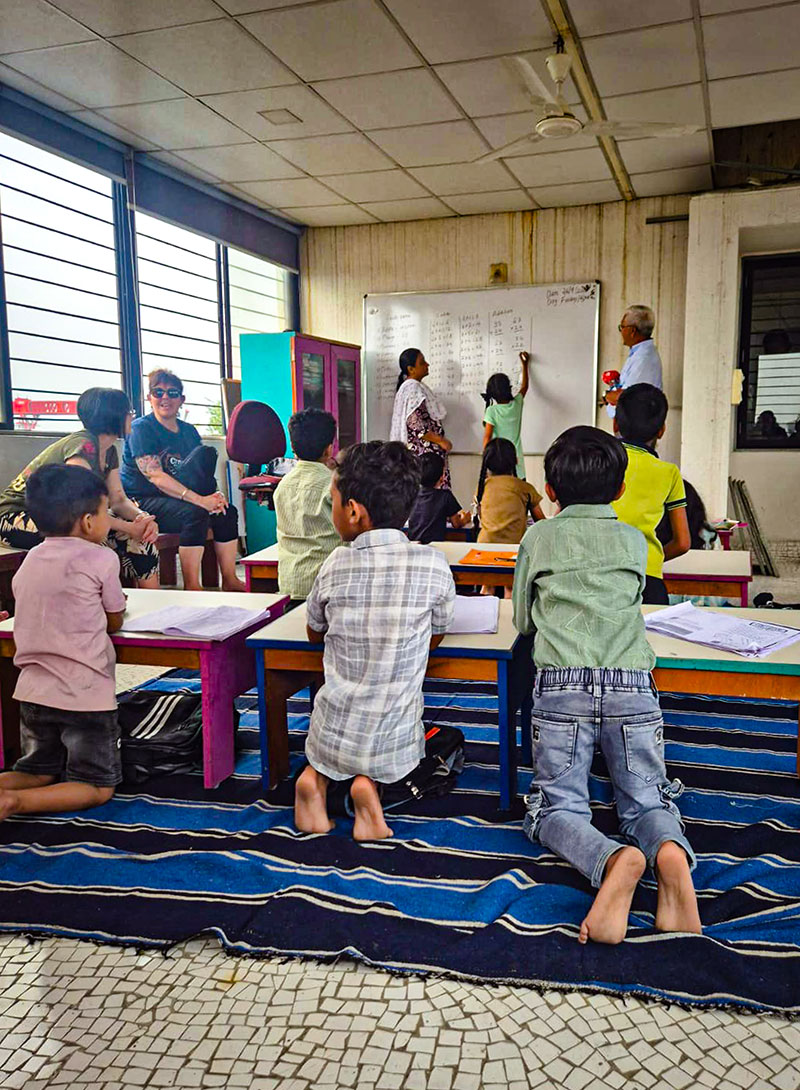
The delegates were invited to neighbourhood homes participating in the SEWA Green Chali Initiative – a campaign focused on the environment, women’s empowerment, and sustainable urban development. Women spoke about their experiences of participating in a study to track the impact of heat on their health and safety at home, and initiatives to improve home cooling systems.
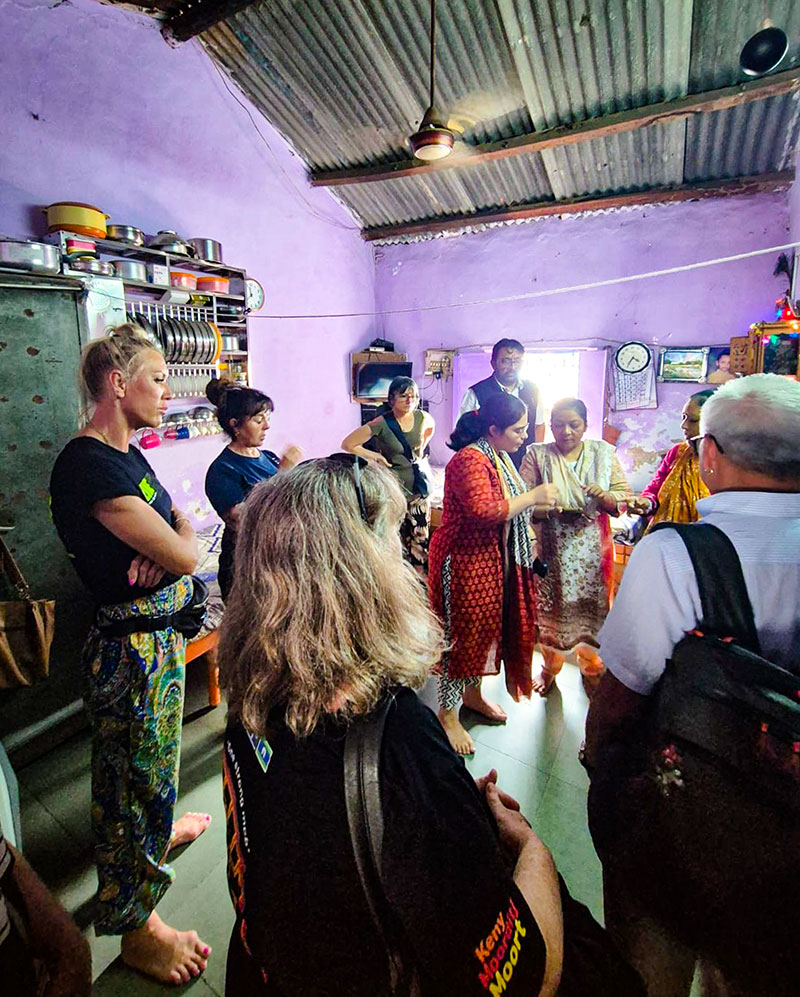
The tour then attended a SEWA Convention of Construction Division members – 1000 construction women from 18 Indian states. Workers spoke about their workplace issues, listened to speakers from SEWA, BWI and the Welfare Board, and endorsed a list of demands to be sent to the State Labour Minister, the Employees State Insurance Scheme and the International Labour Organisation (ILO).
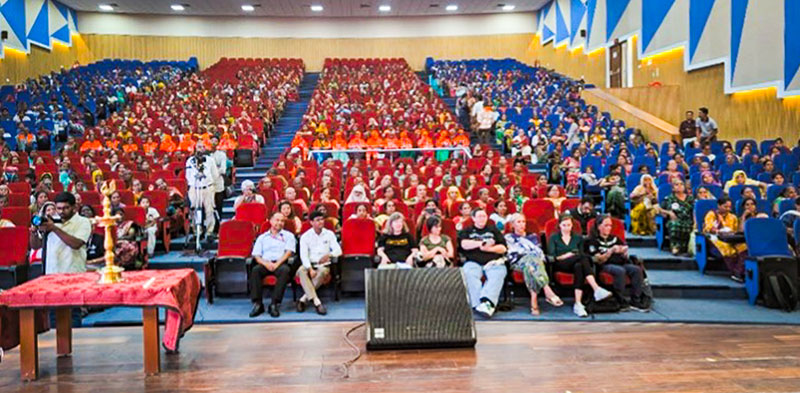
Ronny Buchan addressed the convention on behalf of the CFMEU, and sent a strong message of solidarity with the SEWA struggle for social justice.
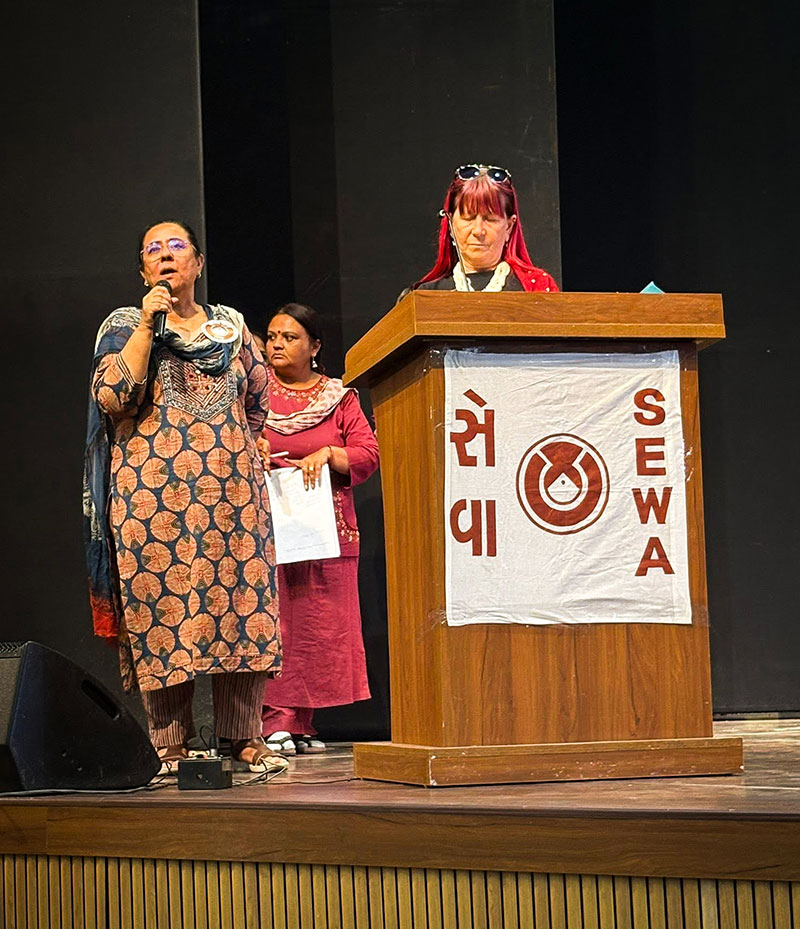
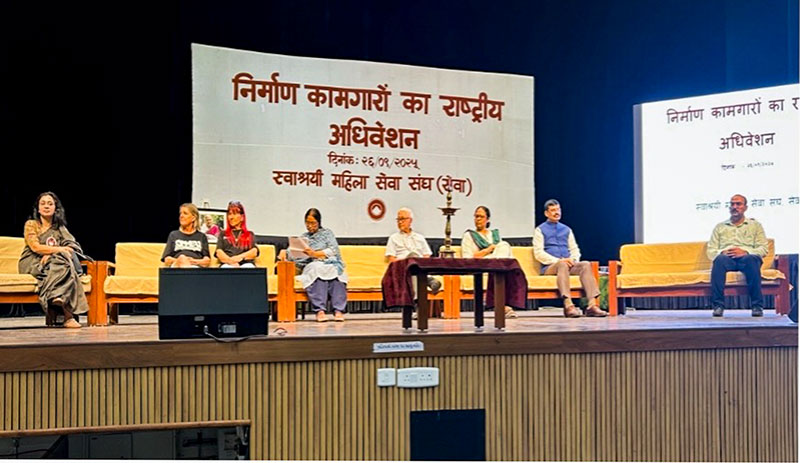
The cohort met some amazing Union activists and future Union members, some wearing strangely familiar t-shirts…
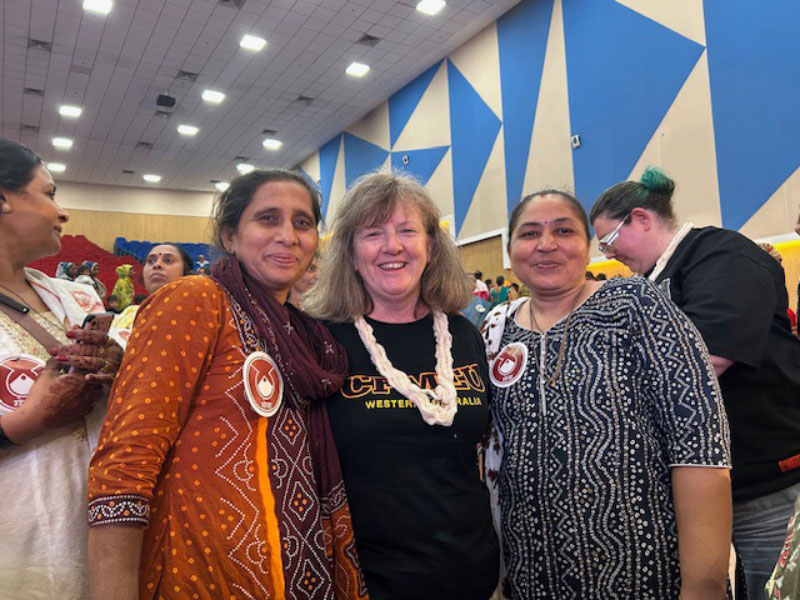
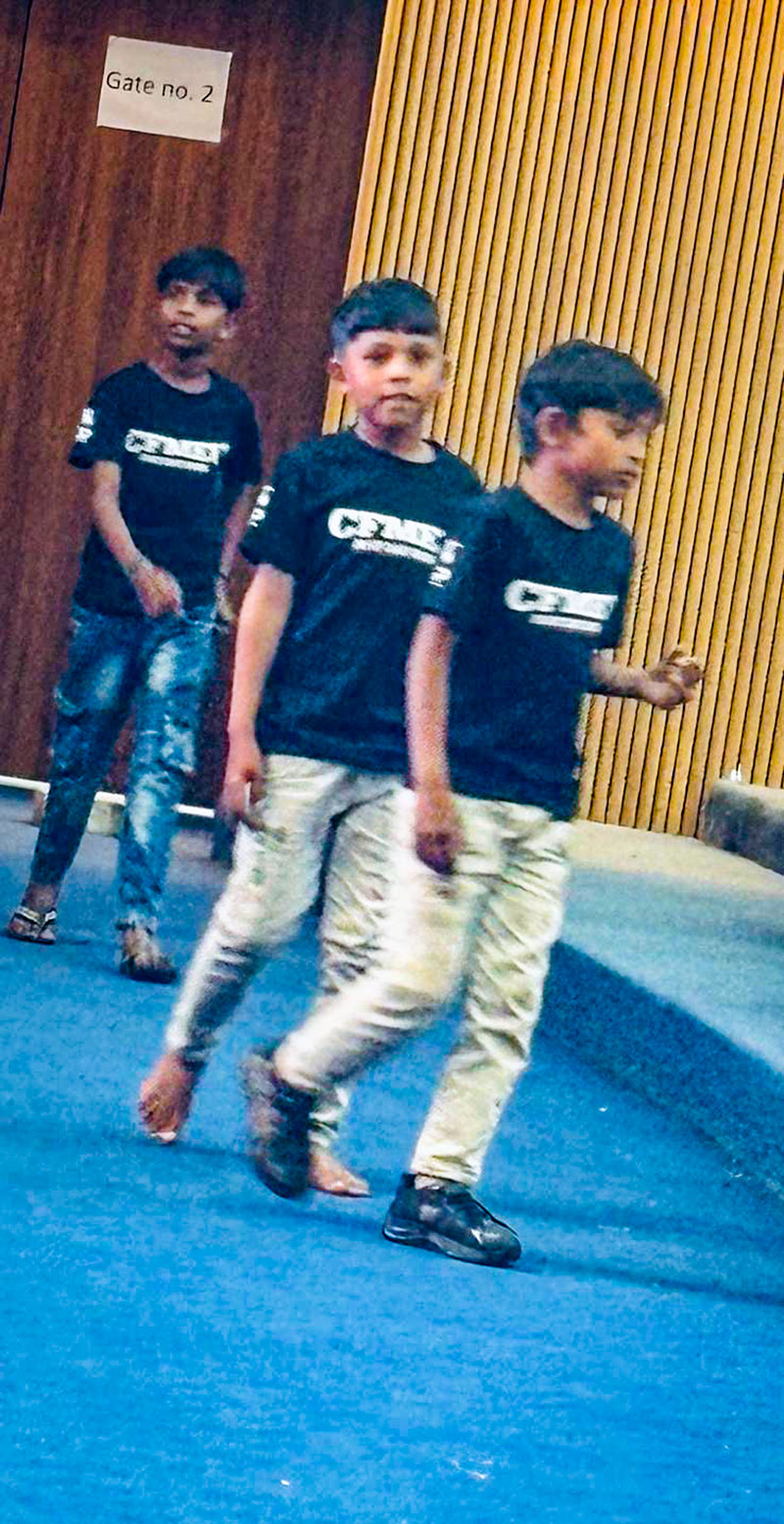
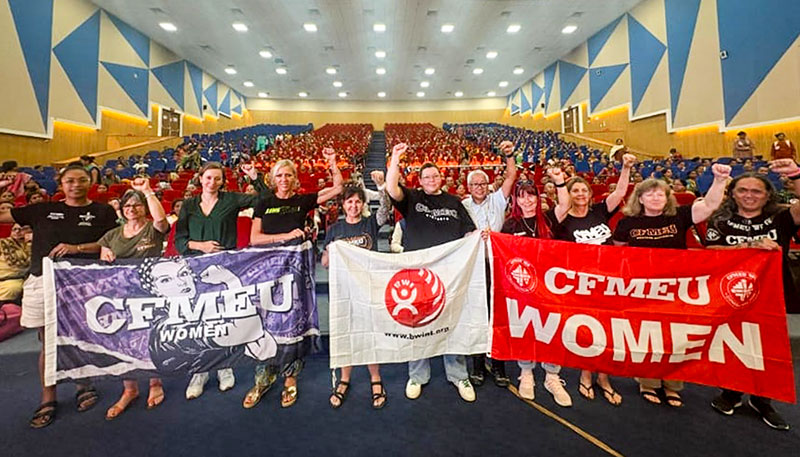
Day 3 – September 27
On Saturday the tour was invited to a round table discussion on the impact of climate change on the livelihoods of construction workers, organised by the local construction Union – the Bandhkam Mazdoor Sangathan. The round table was attended by construction and forestry workers, as well as representatives of the construction welfare board and contractors.
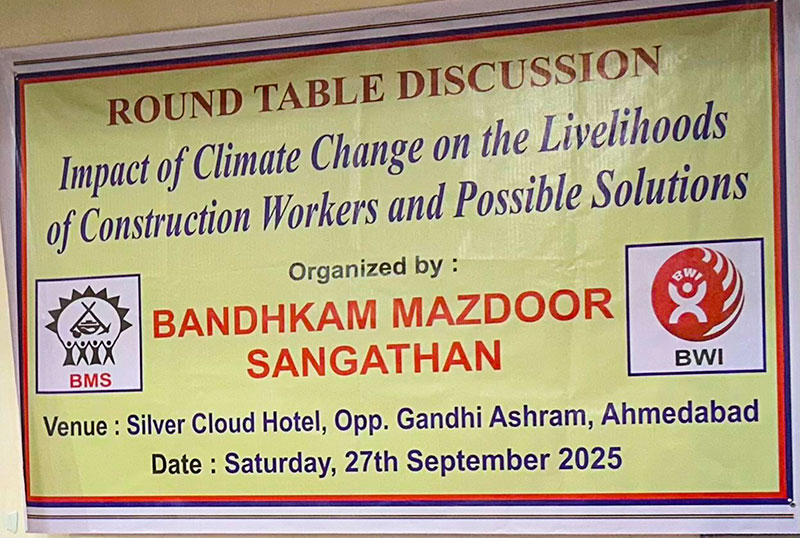
Michelle Sheehy (CFMEU WA) and Lisa Zanatta (CFMEU VIC-TAS branch) shared information on current CFMEU education and training strategies to protect the health and safety of workers from hazards associated with climate change, and protecting jobs and wages during extreme weather events.
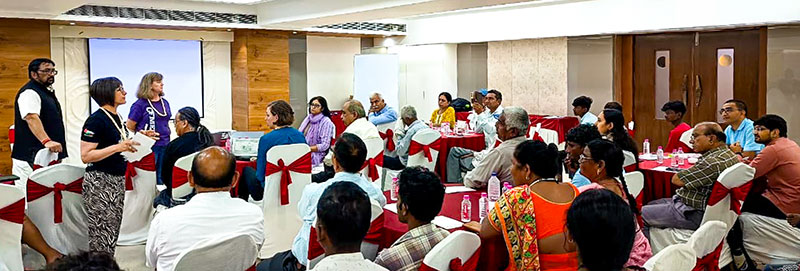
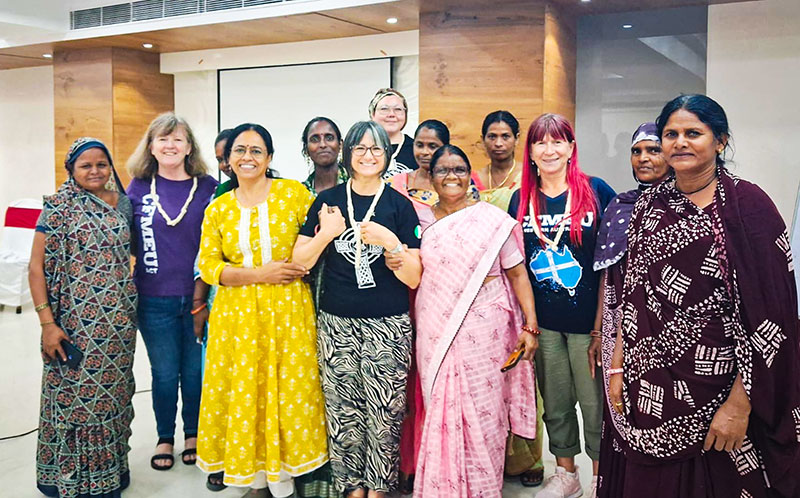
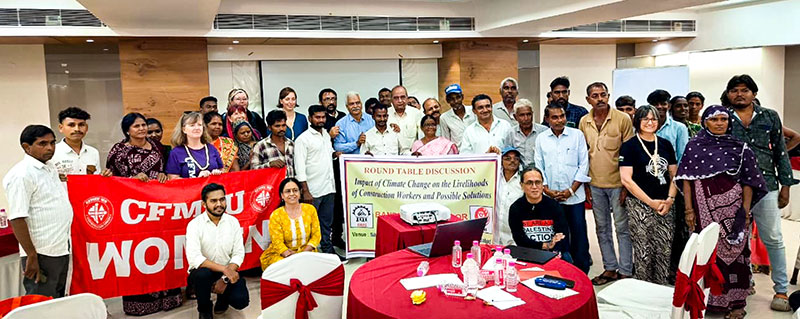
Day 4 – September 29
Building Workers International Asia Pacific Regional Women’s Committee Meeting, Colombo Sri Lanka
The BWI Asia Pacific Regional Women’s Committee Meeting was chaired by Phyo Sandar Soe, Assistant Secretary of the Confederation of Trade Unions – Myanmar and human rights activist currently living in exile in New Zealand. The meeting was attended by Lisa Zanatta, Vice Chair of the Committee and CFMEU VIC-TAS official, with the Australian CFMEU delegation in attendance as observers. Moving and inspiring reports were received from representatives of Nepal, Myanmar and South Korea.
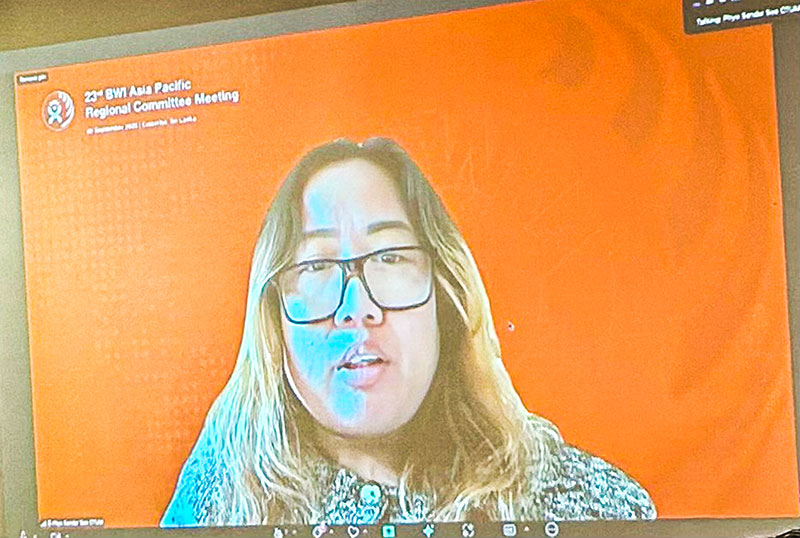
Phyo Sandar Soe, BWI Asia Pacific Women’s Committee Chair
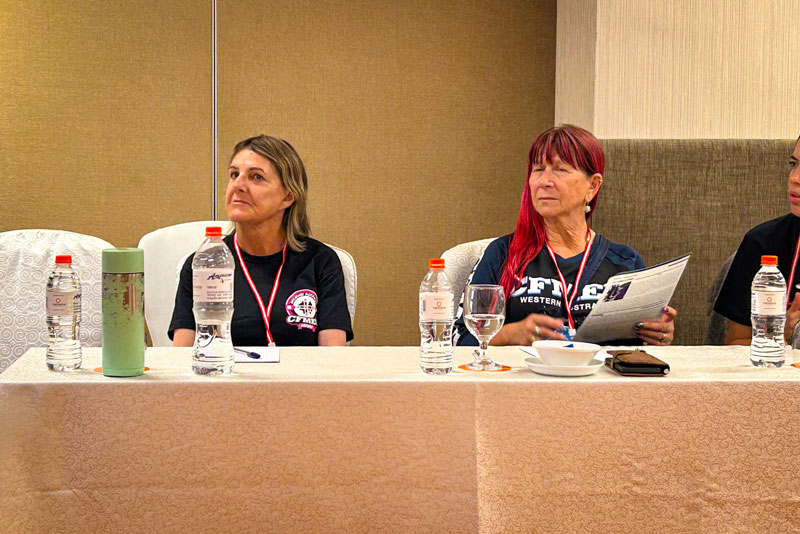
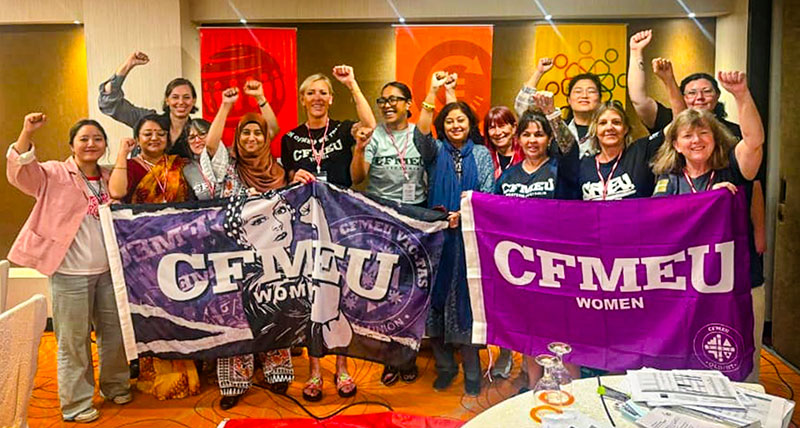
Thematic Forum on Inclusive Built Environment for Climate Justice
The forum on campaigning for climate justice was opened by the President of the Trade Union Federation of Sri Lanka, and speakers included Michael Wright, National Secretary of the ETU Australia. The forum included information on the impact of climate change (especially extreme heat) on construction workers in the Asia Pacific Region, and the strategies that Unions are campaigning for to protect the health and safety and income security of affected workers.
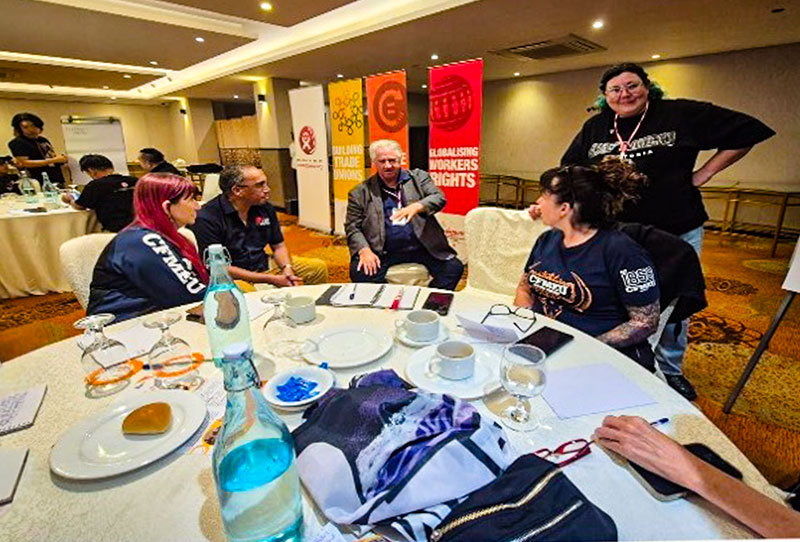
Opening of the new BWI Country Office (Sri Lanka) – the Workers’ House
In the evening of the tour’s first day in Colombo, delegates attended the opening of the new BWI project office in Sri Lanka.
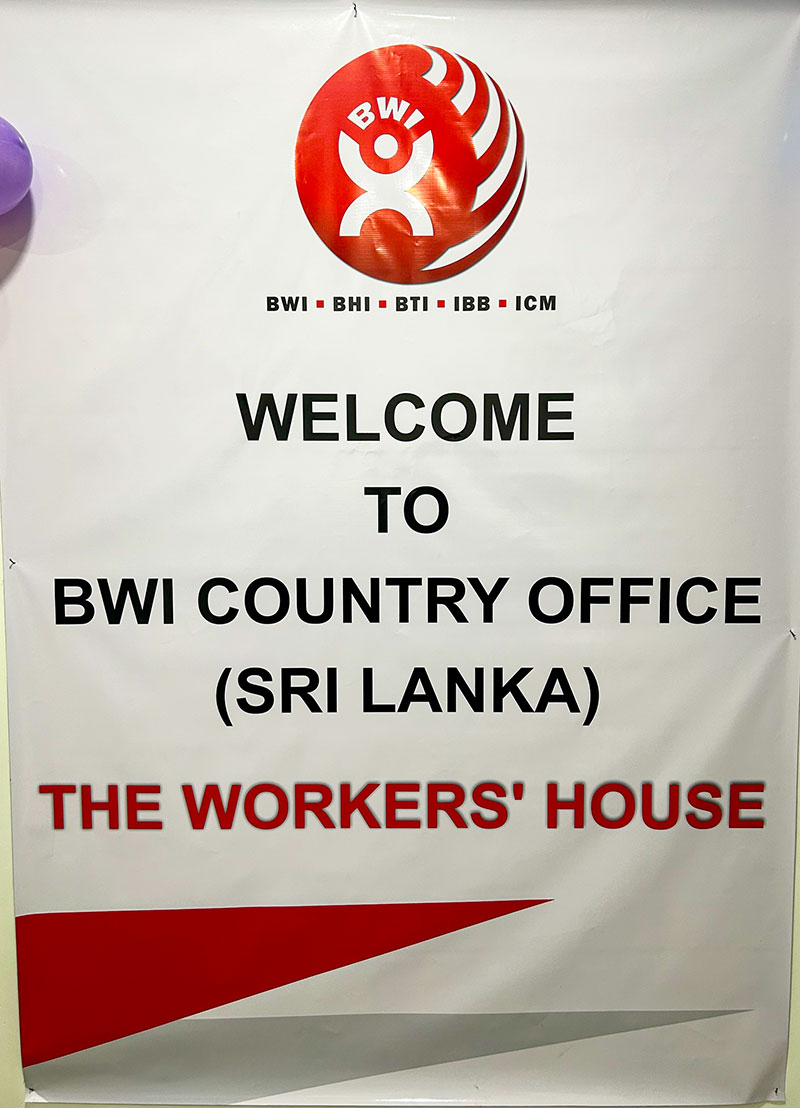
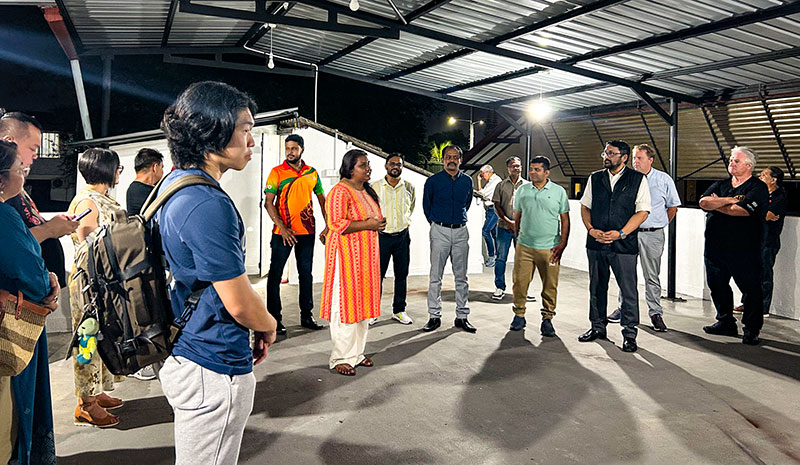
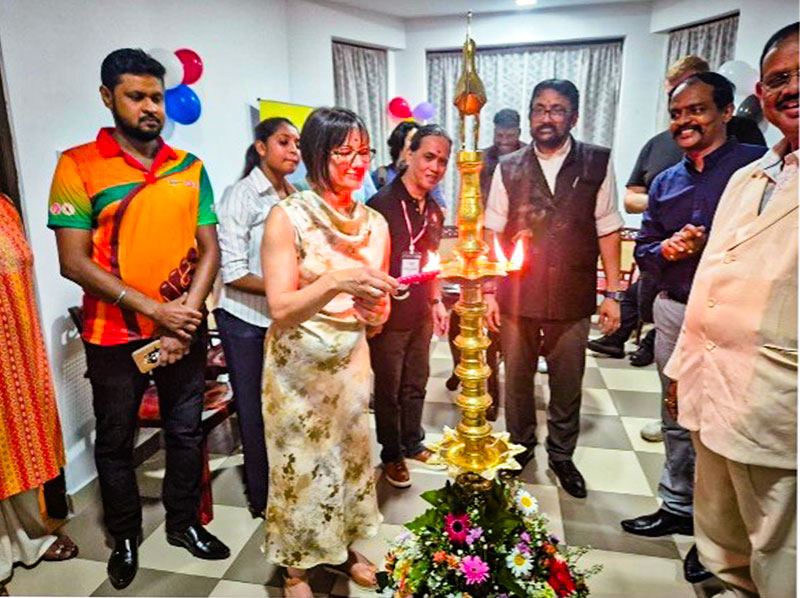
Day 5 – September 30
Building Workers International Asia Pacific Regional Committee, Colombo Sri Lanka
The Building Workers International (BWI) Asia Pacific Regional Committee Meeting was opened by Ambet Yuson, the General Secretary of the BWI.
Reports included updates on activities by regional affiliates including Nepal, Korea, Myanmar and Australia. The agenda also included reports on key areas of BWI work in the Asia Pacific Region and preparations for the World Congress of the BWI in San Paolo, Argentina in November 2026.
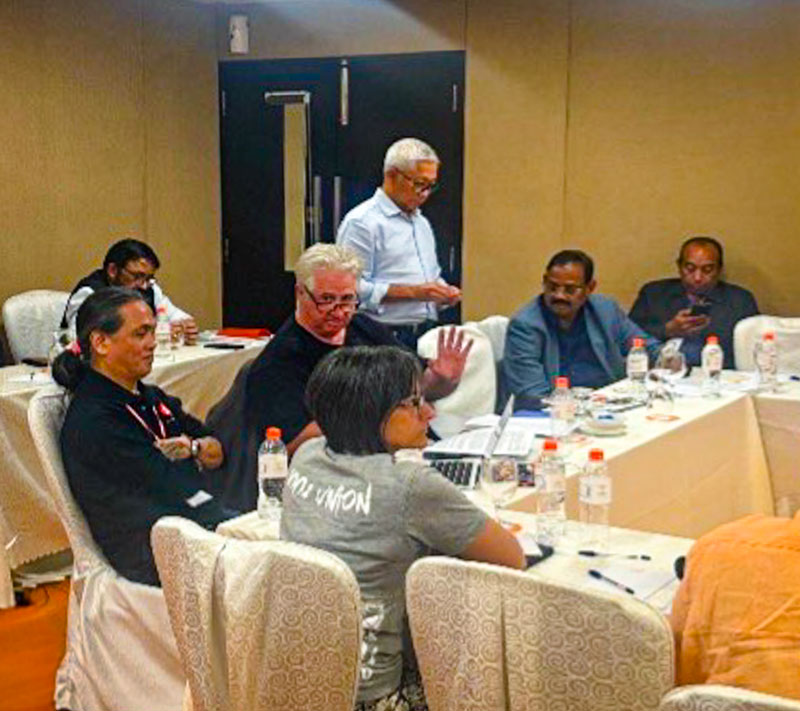
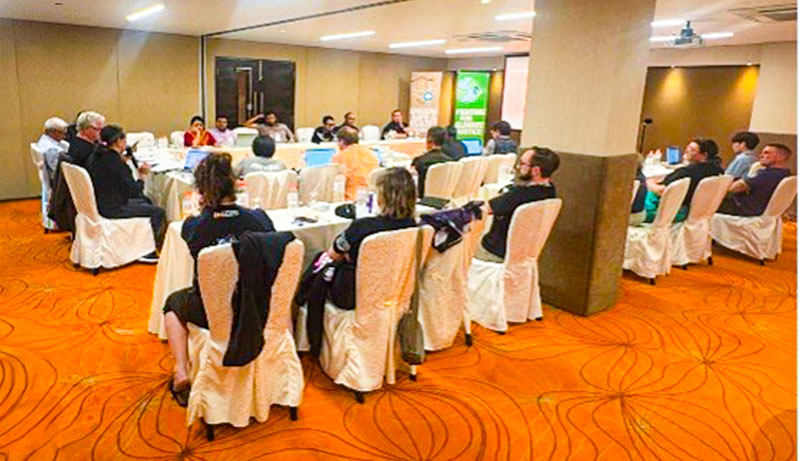
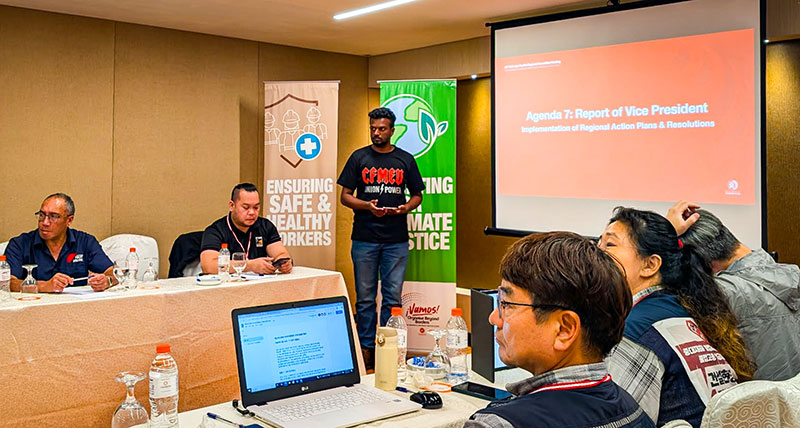
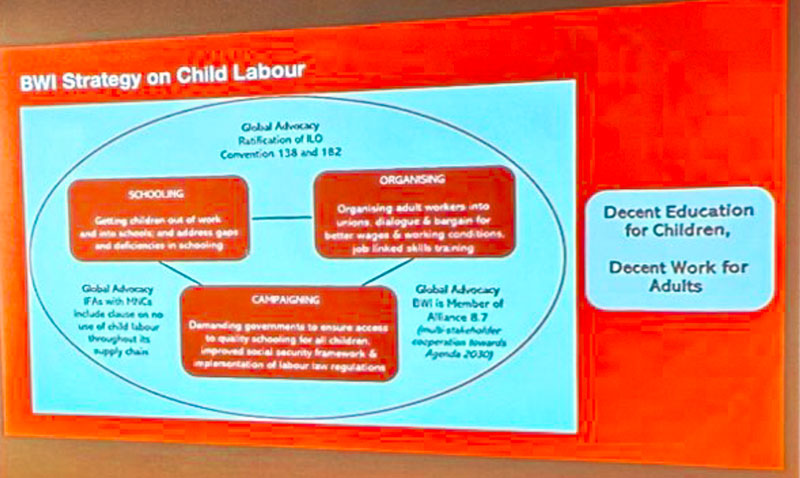
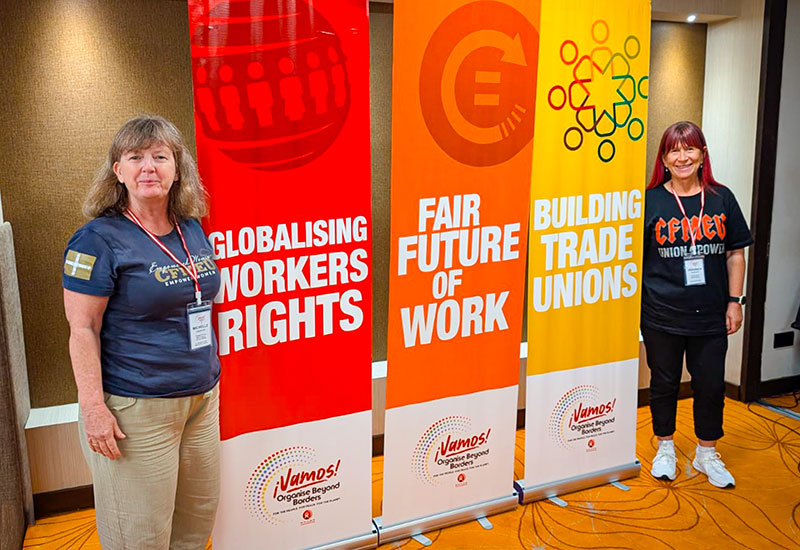
CFMEU WA representatives Michelle Sheehy and Ronny Buchan

